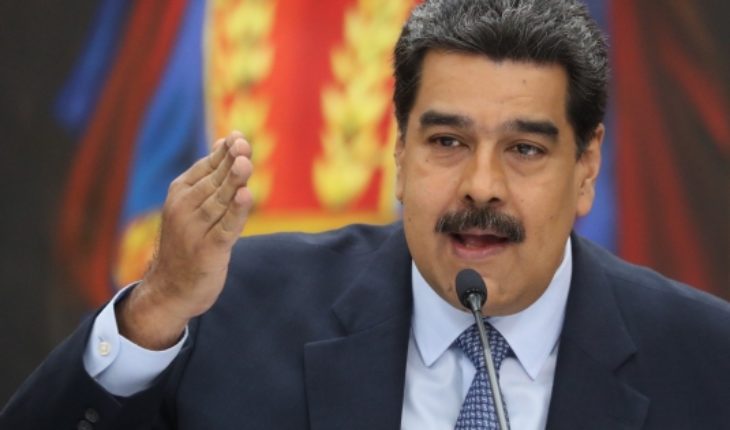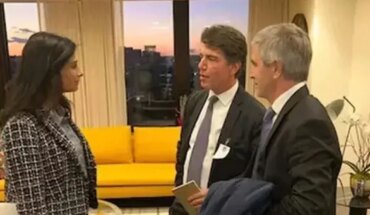The strong recent UN report on serious and systematic human rights violations
Venezuela, coupled with the massive exodus of its population and the pre-war climate of
the extreme polarization that overwhelms the country; are increasingly becoming necessary for the support of the international community
to achieve a peaceful and democratic solution to the acute conflict suffered by their society. However, the major Latin American nations – grouped in the Lima Group – are not contributing to this with the absurd and impolitical “recognition” of Juan Guaidó as Venezuela’s “president in charge”, and the consequent disqualification of Nicolás Maduro as “usurper”.
Absurd, since it is clear that Guaidó is neither legal nor de facto, the head of Venezuelan state. The fact that the Maduro government has compromised its democratic credentials with the ignorance – via the judiciary, completely dependent on it – of the powers of the National Assembly, does not make Juan Guaidó a legitimate president of Venezuela. So much so that even the States that make up the Lima Group continue to recognize as Venezuelan ambassadors the representatives of the Maduro government…
And impolitical, because that gesture legitimizes the most radical sections of the opposition that seek violent change of government which, given the extremely polarized climate) can most likely lead to a civil war. And, dialectically, it also strengthens – within its political space – the most inflexible government groups against a political agreement with the opposition.
Unfortunately, the mutual empowerment of the most radical sectors on each side has been the tonic of Venezuela’s political relations since the election of Chávez as president in 1999. To the authoritarian imprint of a military president who had also led a thwarted coup in 1992; opponents to overthrow him were added from the outset. Thus, as far back as 2000 he tried to depose it, declaring him “indemente”. Then, unequivocal coup plotters fruited with Chávez’s fleeting overthrow in 2002 (overthrow explicitly supported by the Bush, Aznar and Lagos governments). Subsequently, in 2005, the opposition boycotted the parliamentary elections; and all this culminated in the insurrectionary attempt to make the country ungovernable (the “exit”) in 2014.
All these failed attempts were contributing – among other factors – to the progressive strengthening of the most radical sectors within the self-styled Bolivarian Revolution, complemented by the exodus from chavismo of the most moderate personalities who initially supported him. In addition, the undemocratic and clumsy boycott of the 2005 elections made it possible for the unanimously governing consequent National Assembly to designate a judicial power and other key institutions of the democratic system (such as the electoral system) in its entirety profit of chavismo. Clearly, this allowed for legal impacts on human rights, and particularly the right to free information and expression; to end in 2016 with the aforementioned ignorance of the powers of the Legislative Power, which acquired a clear opposition majority as a result of the elections of the same year.
If it is to effectively influence the democratic and peaceful resolution of the Venezuelan conflict; the Lima Group should first and foremost fully and explicitly support the mediation being carried out by Norway with the support of the International Contact Group, made up of several Latin American and European countries, in favour of an agreement between government and opposition that leads to that. The countries that make up the Contact Group are Bolivia, Costa Rica, Ecuador and Uruguay, in our region; and Germany, Spain, France, Holland, Italy, Portugal, United Kingdom and Sweden, from the old continent. This is so far from the current reality – at least in Chile – that this International Contact Group is not even mentioned by politicians and the media that articulate public opinion, so its very existence is virtually unknown! …
In addition, the Lima Group should take all measures at its disposal to assist Venezuela with humanitarian assistance; and promote that such aid cannot be used pettyly by either the government or the opposition, conditioning its delivery on its distribution being supervised by the United Nations and/or the International Red Cross. Also, in order to provide as much as possible – within the sovereign powers of the Lima Group member countries – to a political agreement on both sides, it would be very important for any new interstate relationship with Venezuela to be adopted views of both the Maduro government and the National Assembly. In other words, any new bilateral agreement with Venezuela is diplomatic appointments; official visits; agreements of a political, economic or cultural nature; international cooperation actions; etc., be carried out with the approval of both parties. The essential thing is that the Lima Group develops the maximum of its influence so that Venezuela’s internal actors understand that any attempt to “resolve” the conflict by violently crushing the other party will be completely rejected by the community International.
The content poured into this opinion column is the sole responsibility of its author, and does not necessarily reflect the editorial line or position of El Mostrador.





